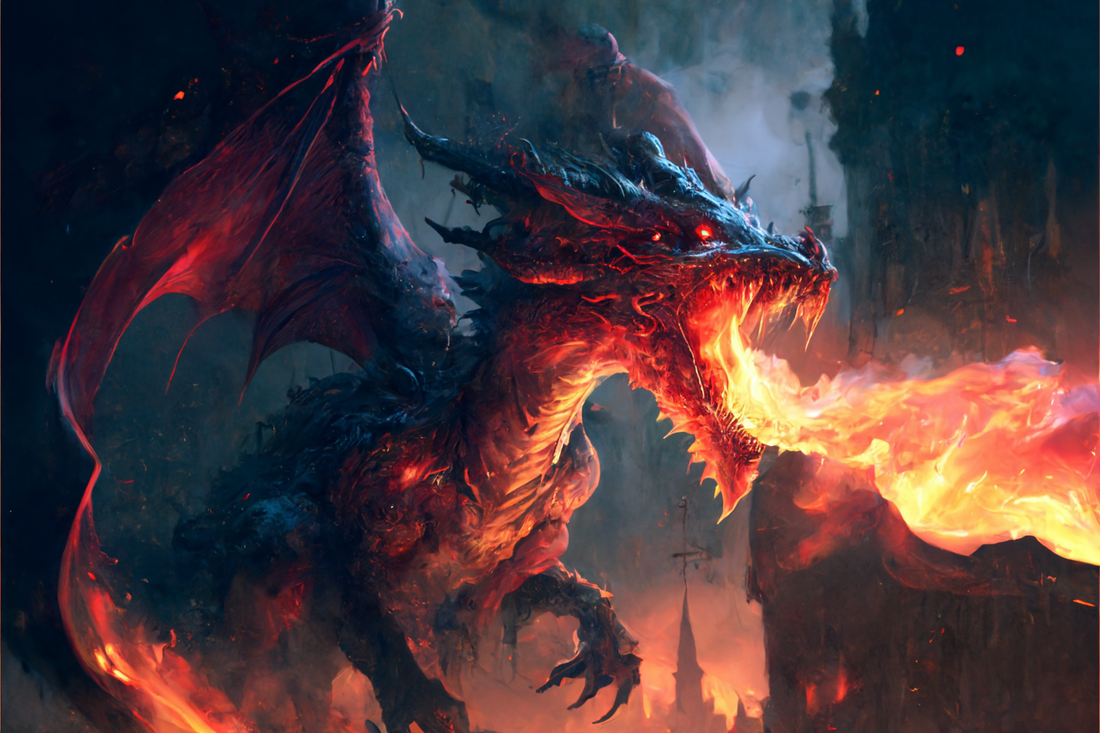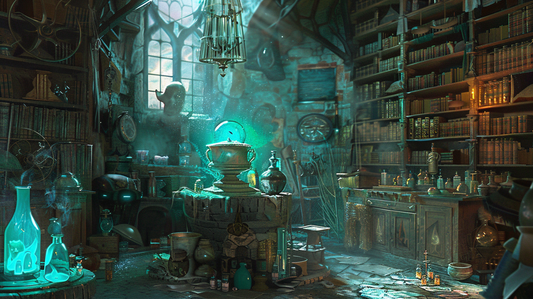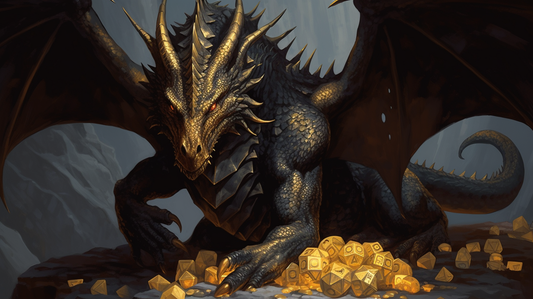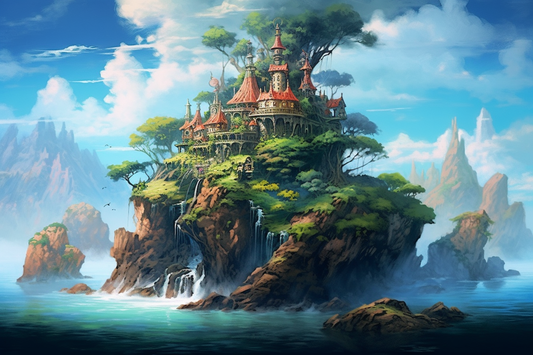
15 Things Every New Dungeon Master Should Know
Quinn JohnsonShare
Whether you're a new dungeon master (DM) or an experienced one just looking to improve your craft, these 15 tips can help you succeed in creating a fun and memorable experience for your adventurers! While we've written these tips with Dungeons & Dragons (D&D) in mind, many of them can be useful for all tabletop roleplaying games such as Pathfinder or Call of Cthulhu.
Here are 15 tips for new dungeon masters:
- Start with a solid foundation
- Don't stress about knowing all the rules
- Plan ahead, but be flexible
- Know your players
- Set expectations for the players
- Run a session zero
- Encourage teamwork
- Use free resources
- Mix up the encounters
- Use descriptive language
- Encourage storytelling moments
- Keep the game moving
- Don't be afraid to say no
- Leave them wanting more
- Have fun and don't worry about making mistakes
1. Start with a solid foundation
Before you even begin your first game, take some time to familiarize yourself with the rules and mechanics of D&D or your RPG of choice. This will make it easier for you to run the game and for your players to understand what's happening. You might also want to consider running a few practice sessions with friends or other experienced game masters to get a feel for the role.
Get to know how movement, range, attacks, and skill checks work. Start to learn more about characters, monsters, and spells, or at least how to find them quickly.
2. Don't stress about knowing all the rules

While we encourage starting with a solid foundation, we don't want you to get so worried about remembering everything that you never play the game! Don't be afraid to take that first step and just try things out. Players will be patient with you if you need to quickly look something up.
With the amount of shenanigans that can happen within a game like Dungeons & Dragons, it's important to remember that sometimes you just got to wing it and go with your gut! You and the D&D dice decide whether something can or cannot happen, including what the consequences should be upon either failure or success.
3. Plan ahead, but be flexible
While it's important to have a general idea of what you want to happen in each game session, be prepared for the unexpected. Players might make choices that take the game in a different direction than you had planned, and that's okay.
That might be initially frustrating if you, for example, had a grand reveal planned about an NPC actually being a reluctant vampire with good intentions but your players slay them before they can explain the true noble desires of their heart. However, you'll soon realize that the most fun happens when the group is allowed to explore and act freely! Imaginative shared storytelling is what makes tabletop RPGs unique.
4. Know your players

The more you know about your players and their interests, the better you'll be able to tailor the game to their preferences. Ask them about the types of characters they want to play, the kinds of stories they enjoy, and what they hope to get out of the game.
You might also consider asking them what worries them about the game or what situations they would like to avoid. Everyone has their own history and some may have potentially harmful triggers that other players are not aware of. Create a safe and enjoyable atmosphere for all! Which leads us to our next point...
5. Set expectations for the players
At the beginning of the game, it's important to establish some ground rules and expectations. This might include things like how often you'll be meeting, how long each session will last, and what kind of behavior is expected from players.
Besides creating a fun atmosphere for everyone, a game master will likely also be the one planning when the group plays. Creating a consistent schedule is often the easiest route to getting the group together, whether that's weekly, every fortnight, or whenever. You should also be aware of how long each person is willing to play. A bored bard (just for example) can be a bother to everyone once their attention span is overwhelmed.
6. Run a session zero
A session zero is a chance for you to prepare your players. If they're new, this might include walking them through the basic rules. You could use a session zero to just let players get to know each other. This time is also often used to briefly describe the world and help build or introduce characters. It can be whatever you want it to be in order to help your players get ready for the exciting adventure ahead!
7. Encourage teamwork
D&D is a team game, and it's important to encourage players to work together and rely on each other's strengths. Encourage players to come up with creative solutions to problems and to support each other in and out of combat. Each character is likely unique compared to the rest of the group. Their different strengths and weaknesses will make the storytelling compelling as one fails but another is able to offer aid.
8. Use free resources
This guide for dungeon master tips wouldn’t be complete without recommending some free resources you can use to get started right away!
Check out Rune Foundry’s one-shot adventures for quick stories that allow players to get into some D&D 5e action right away!
You can also use our free battle maps with miniature figure from Hero Forge to give your players an easy way to physically see the action taking place.
If you’re having trouble keeping track of rules, players, and monsters, you’ll likely benefit from using DnD Beyond. Purchase the source books to unlock content you can easily view and track from your phone, tablet, or laptop.
9. Mix up the encounters
While combat is a big part of D&D, it's not the only thing that happens in the game. Don't be afraid to throw in some non-combat encounters, like puzzles or social interactions. Besides providing fun variety, this also gives players a chance to use different skills.
10. Use descriptive language

One of the things that makes D&D such an immersive and engaging game is the use of vivid, descriptive language. Take the time to describe the scenes and characters in your game, and encourage your players to do the same.
Besides all the details they might see, consider your other senses. What might players hear in a bustling tavern, or smell in a damp jungle? A common dungeon master tip is to ask the players to add more description if it relates to their actions.
11. Encourage storytelling moments
While the combat is certainly very cool in D&D, players will also greatly appreciate a good narrative. Your adventurers should play a large role in driving the narrative between one another and non-player characters (NPCs). So encourage moments for them to reveal more about their backstories or motivations. Ask players if their characters discuss anything while traveling or perhaps before heading off to bed.
12. Keep the game moving
There's nothing worse than a game that drags on and on. To keep the action going, try to keep encounters short and sweet, and encourage players to make decisions quickly. Ask them what they are doing or planning.
13. Don't be afraid to say no
As the DM, you have the final say on what happens in the game. If a player is breaking rules, it's up to you to correct them so that the game remains fair for all. Sometimes saying no can lead to even more fun as players are required to think more creatively to find a solution that fits within the game's bounds. Likewise, you should also be prepared to halt any behaviors that needlessly make other players uncomfortable. Don't let one person ruin the fun for all!
14. Leave them wanting more

We’ve all encountered a shocking cliffhanger in a show or book before. You want more and dream of what could happen next, pondering the preceding events. When deciding when to end a session, consider doing so after a big reveal or after a heartwarming conversation at the conclusion of a long day of adventuring.
15. Have fun and don't worry about making mistakes
The best way to learn Dungeons & Dragons is by playing it. That’s probably similar to what a rogue says about lockpicking and what a barbarian says about breaking things. Just try it and be prepared to improve over time!
Some of the best memories in D&D often come from the silliest of moments. Don’t let silly mistakes be what keeps you from trying the fun role of Dungeon Master! Your players will be grateful for your efforts.
———
That concludes our 15 dungeon master tips. We hope you enjoy the role of a D&D dungeon master! Do you have any remaining questions? What else should we add to our dungeon master guide?



